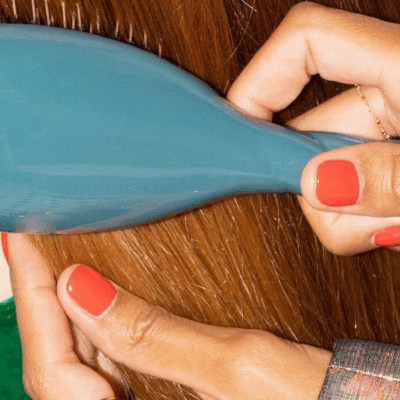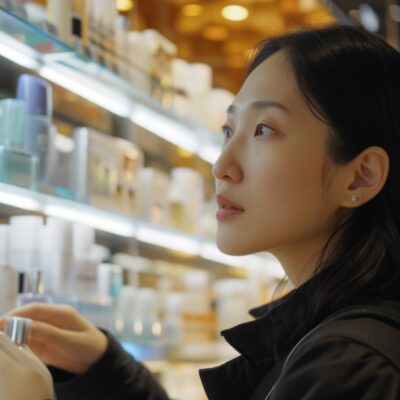
How Beauty Brands End Retail Relationships Without Burning Bridges
In this edition of Beauty Independent’s ongoing series posing questions relevant to beauty entrepreneurs, we ask 13 brand founders and executives: What do you do when you want to pull out of a retailer?
- MURPHY D. BISHOP II Co-Founder and CEO, The Better Skin Co.
Having pulled out of a major retailer, it's pretty simple. We first assess our monetary risk (buybacks, etc.) and, then, plan a conversation with our buyer. We are always aware of floor set dates, so we aim to start our exit one quarter before the next set. This allows us to sell through and allows the retailer to fill our space.
- Gwen Jimmere CEO and Founder, Naturalicious
When we want to pull out of a retailer, it's usually because the terms are no longer conducive to our business or because they haven't been honoring our MAP pricing (minimum advertised price). In the past, we've requested a meeting to ensure we are on the same page and can continue to do business together. If we decide it's not working out, we review our terms, send a formal letter and provide ample time for us to pull our inventory from their shelves or allow them to sell through what they have in stock.
- Jessika Carter-Ross Owner and Founder, Madam J Beauty
I currently sell my brand in seven locations. I'm always looking for more, but I choose my retailers wisely. Everything that looks good isn't good. When I'm ready to pull out of a retailer, I make sure I review the contract or agreement I signed. I ensure the retailer provides me with an updated inventory list and double check the store inventory.
One retailer I pulled out of required that I give a 30-day notice. We arranged a date for pick up, they provided the ending inventory count, and I received my final payment. Regardless of the situation, I always strive to follow the rules and leave on good terms.
- MELISSA JOCHIM Founder, High Beauty
When we realize the hemp category is not a great fit for a retailer, we typically sell through inventory and end the relationship. However, we always keep an open-door policy with any past retailers as they may be a good fit down the road. The hemp beauty category is not an easy one to navigate as there is much legislative grey area, and retailers have to figure out what works best for them.
- Amy Anzel Founder and CEO, Hollywood Browzer Beauty
We take all of our retail partnerships very seriously. We put careful thought and consideration into working together in the first place, so pulling out of a retailer or e-tailer is a decision that we do not take lightly. It’s like breaking up with someone. It’s not easy to do.
I think it’s important to always be honest and transparent with your partners and if, for some reason, the partnership is not working for one reason or another, you need to let the partner know and move on. “It’s not personal, it’s strictly business,” as the old saying goes. So, the retailer or buyer should not feel hurt or offended and respect that decision, and the brand should feel confident that they are making the right decision pulling out.
We have had to do it a few times, and it doesn’t seem to get any easier each time, but, looking back, it was the right thing to do. So, be true to the brand, your vision and your retail strategy, and just do it when need be. As a brand grows, their strategy often changes, so it’s important that their retail partners are the right fit throughout this process.
- Junko Gomi CEO, H2O+
We recently became a more direct-to-consumer brand as we evolved into a cleaner, more prestige skincare brand. The decision to exit a retailer is always a very challenging decision. Similar to our skincare, we take a very thoughtful and intentional approach. We analyze every aspect of the business, weighing both the pros and cons. Our goal is transparency across the board, and our approach with a retailer is no different. In the rare times we have done so, we provide rationale based on our business strategy, and we always partner with the retailer to determine the most ideal, mutually beneficial plan and timing for separation.
- Jennifer Edwards Creator and Chemist, Refinne
I read the contract terms to ensure I am following the letter of the law and seek clarity on any penalties and align it with the contract. Most of all, I am intentional and thoughtful about the retailers I partner with to hopefully avoid the situation.
- SELMIN KARATAS Co-Founder, Kazani
Pulling out of a retailer may be due to a myriad reasons. This can be from changing your branding and then your brand might not fit the retailer's customers. Another reason one might pull out of a retailer would be the payment methods. Some retailers offer consignment while other retailers give you net 30 days. Depending on the situation, you need to analyze it. I kindly let the retailer know in advance that I cannot work with them anymore due to the specific reasons.
- EVELYN SUBRAMANIAM Founder, Bija Essence
There are different reasons to pull your product from retail stores, especially during COVID or difficult economic times such as today. For us, usually when products are bought on wholesale agreements, there is no need to pull out. It is the retailer’s objective to sell all products, and we will assist in marketing and PR to push sales. When a retailer wants to restock, they repurchase with wholesale pricing.
If we want to pull out, usually it is at the beginning of a slow sale season, and we will have an initial verbal conversation followed by a written consent. It is important that any agreement or consent is canceled or terminated between the two parties. It is important to settle any financial obligations before you pull out or agree on a payment date. For example, if you have a consignment agreement, then payment might be met at net 30 or net 60. Golden rule, make sure you keep an amicable, professional, open relationship with your retailers. We usually return with new or more products just before a high season.
- Charlotte Knight Founder and CEO, Ciate London
We work extremely collaboratively with all of our retail partners and are very strategic with any retailer we choose to list with. We enter into any new launch with a 360 strategic plan, which is agreed from the outset from both sides. Unfortunately, on occasion the plan doesn’t always fully deliver, we will work to understand why and work in partnership to make the necessary changes to get back on track, which most often turns the plan around.
Our true main reason for ever pulling out of a retailer is due to non-brand authorized discounting. We obviously cannot control the retail prices our customers set, but, if the level of discounting starts to become brand damaging, then we would always firstly look to stop this from happening and, if this continues, we would politely step away in order to protect the brands in other retailers and markets.
- Paayal Mahajan Founder, Essential Body Couture Skincare
I have only one retail partner, and that has served me well during this time. I have not had to worry about languishing stock, lost investments, etc. Being direct-to-customer has been my greatest saving grace as a business. It has also enabled me to drive business directly to my website.
- BEATRICE DIXON Founder and CEO, The Honey Pot
Fortunately, I have not had to exit any retailers at this time. When it comes to business, sometimes you will have to make tough choices like that and a relationship may not work out, but I believe that the best way to approach it is with grace and professionalism.
- Andreas Flohr CEO, ATP Cosmetic GmbH and LIVV
In our early journey, we have still not faced this situation, but, as founders, we have very clear values and principles we follow in our everyday decisions. In any performance review, we want to make sure our external partners understand our business needs, goals and success measures upfront. We document these metrics and review them on a regular basis. By following a transparent, fair and systematic process, we believe we can minimize any surprises among the parties during the course of events.
If you have a question you’d like Beauty Independent to ask beauty entrepreneurs, please send it to editor@beautyindependent.com.






Leave a Reply
You must be logged in to post a comment.